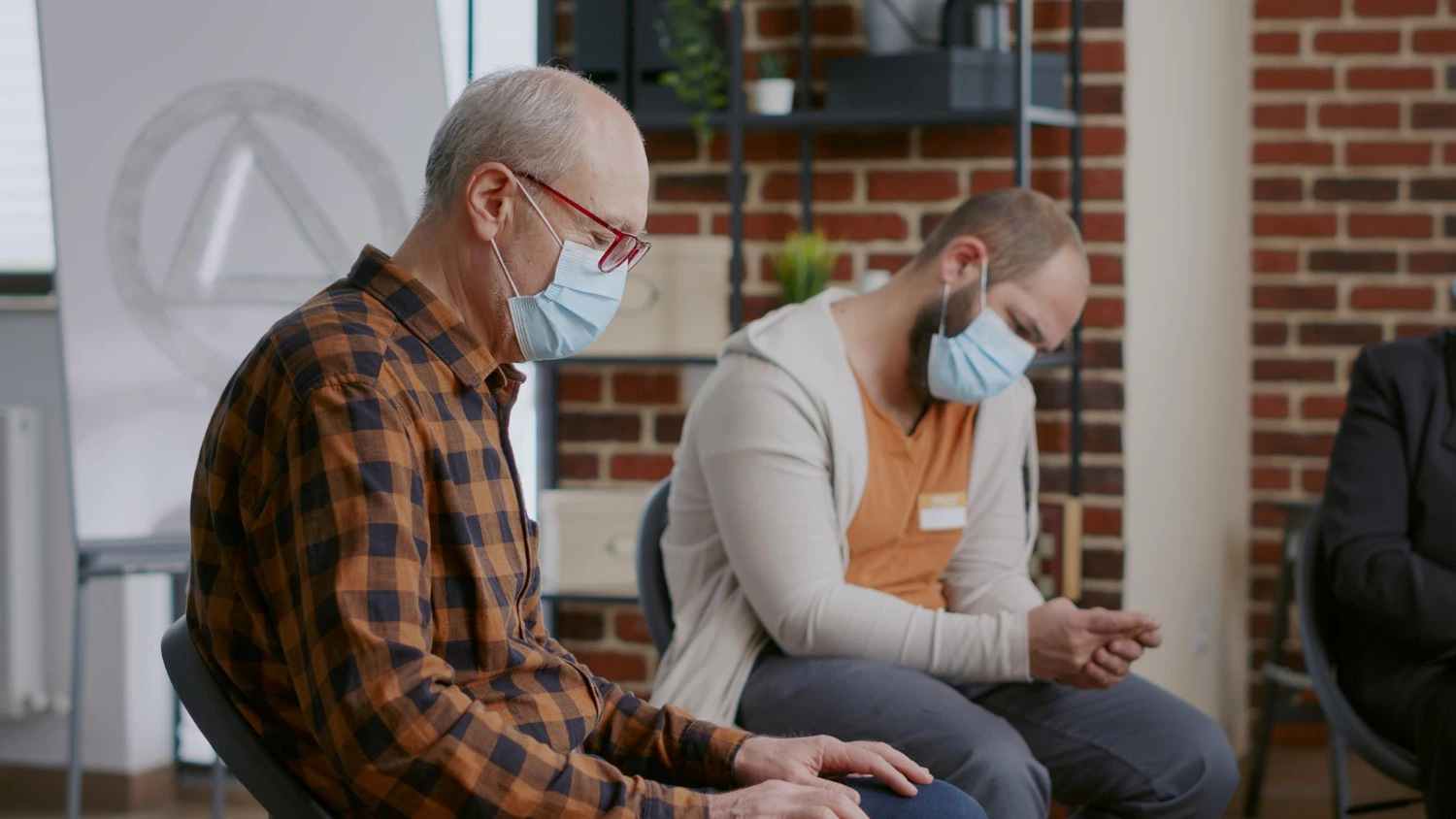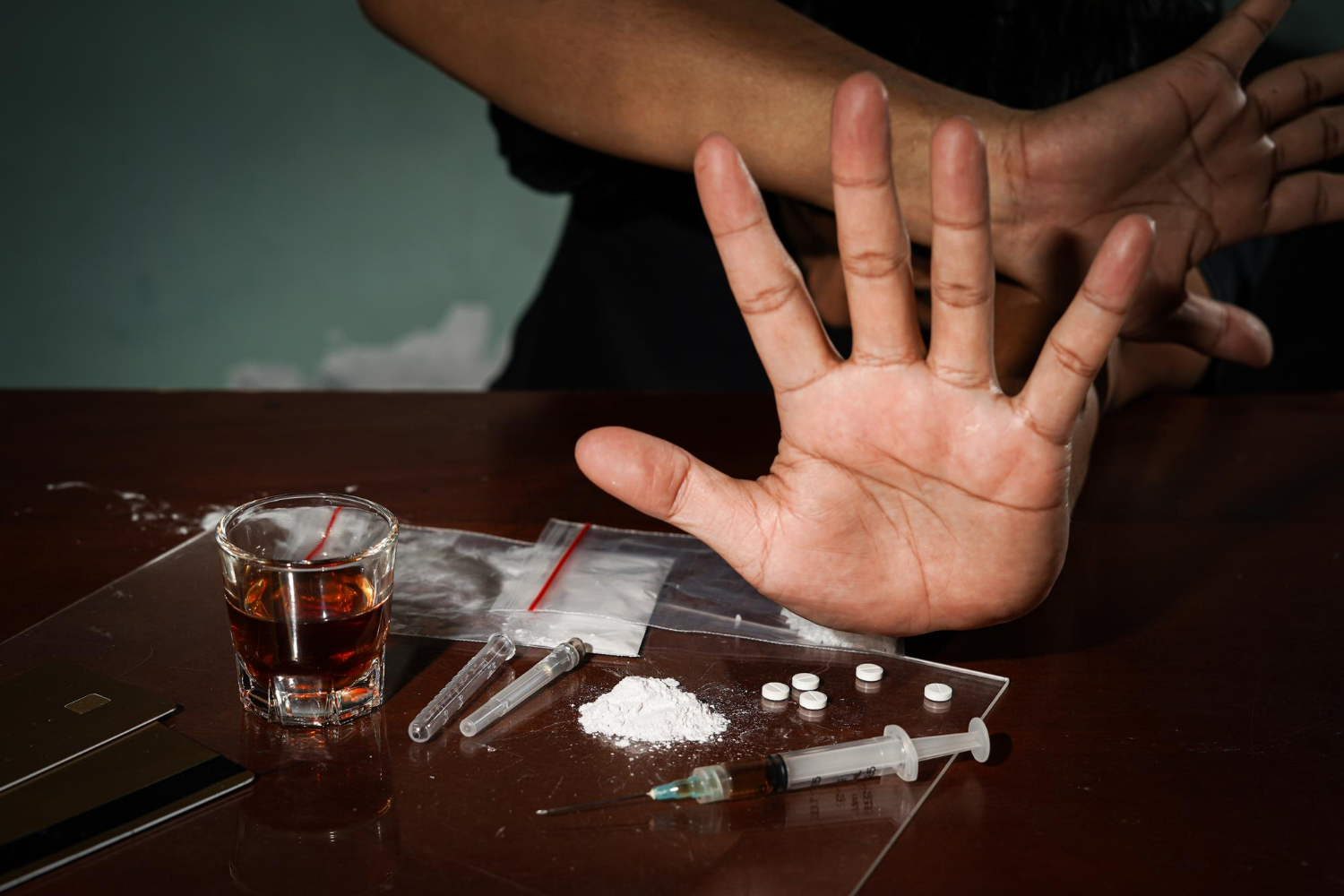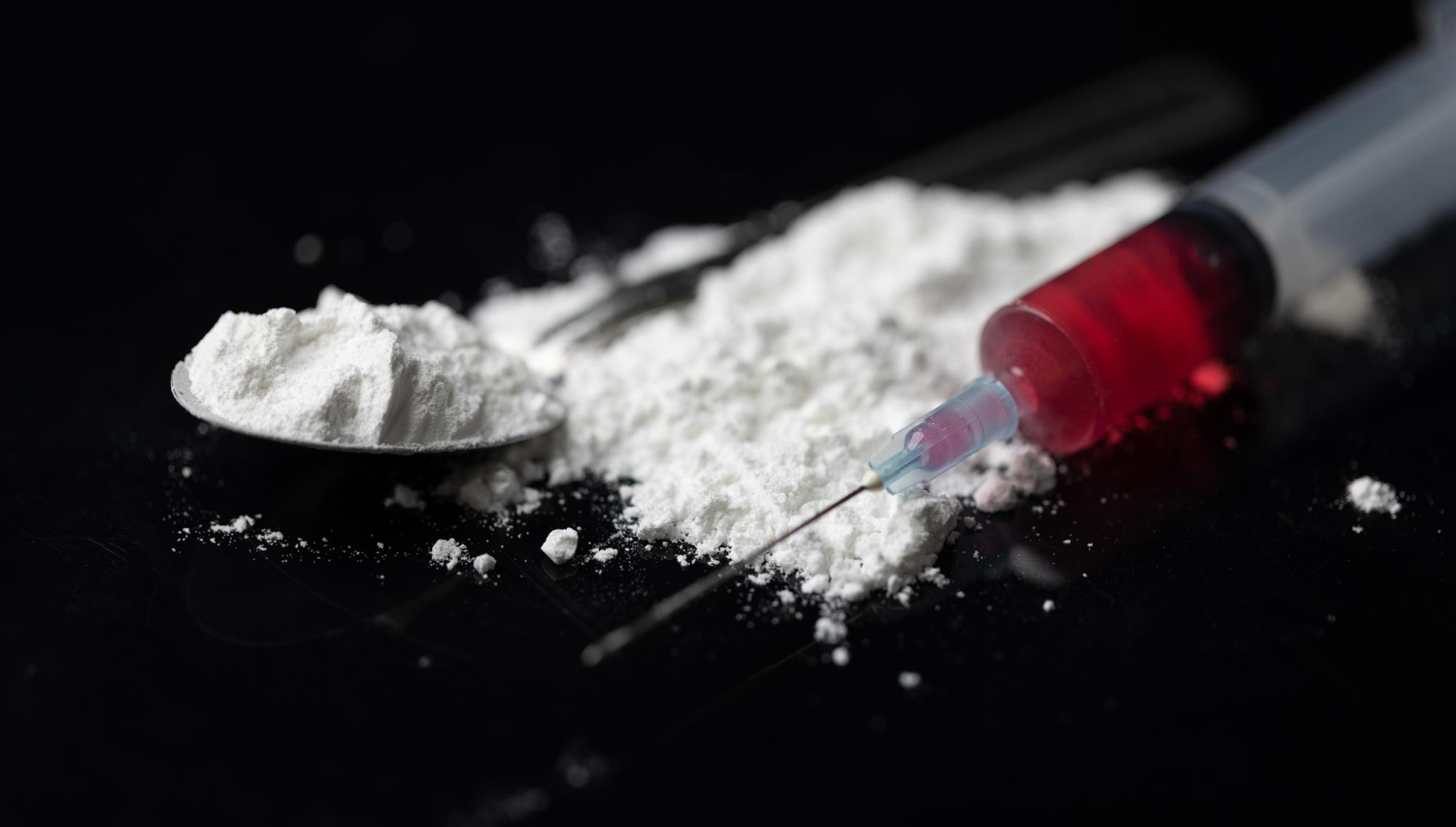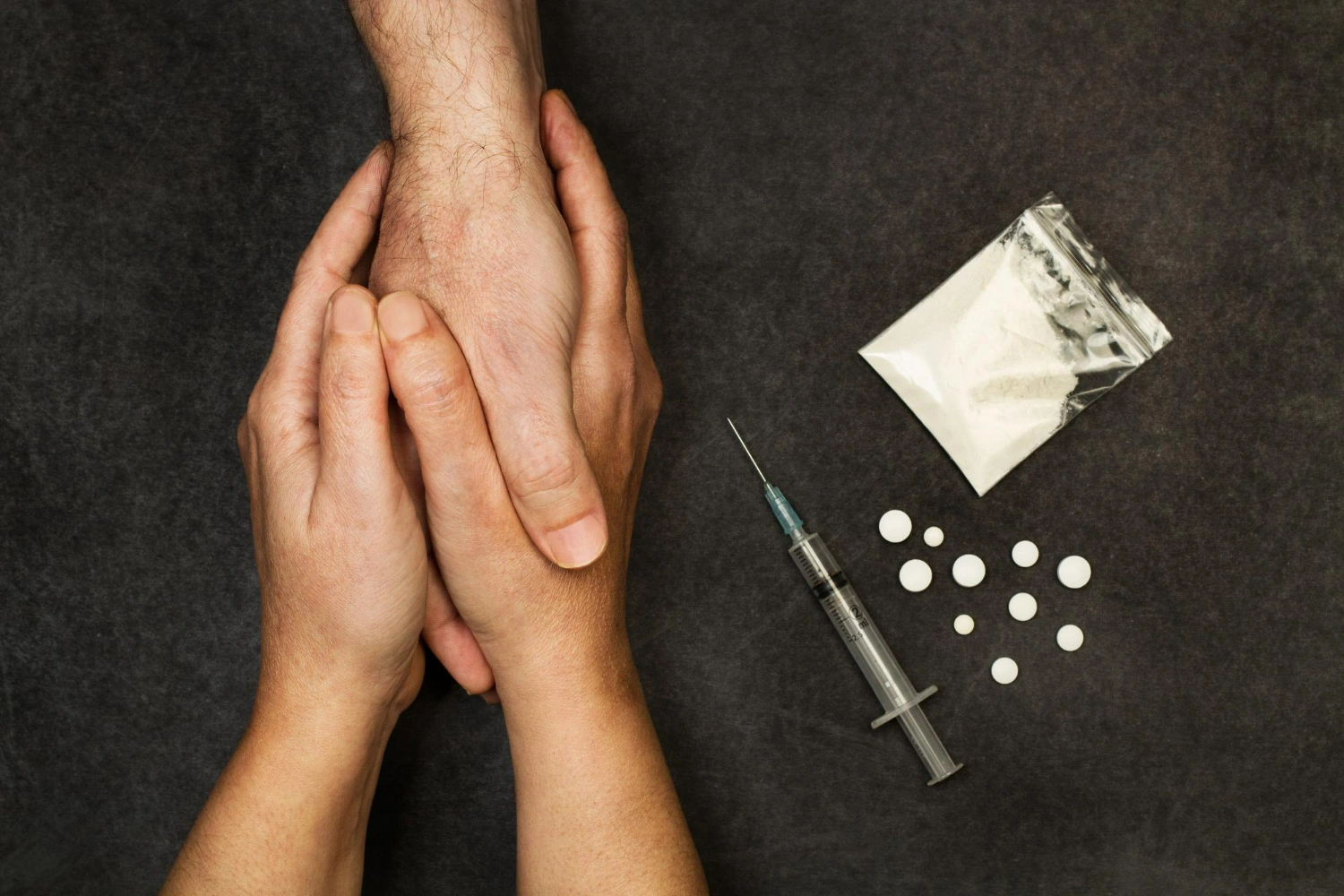Substance Abuse Disorder (SUD) is a complex condition that affects millions of individuals worldwide. Recognizing the early signs of SUD is important for ensuring timely intervention and treatments.
Continue readingBenefits of Peer Support in Addiction Recovery: The Power of Connection in Sustaining Sobriety
Addiction recovery is never intended to be an individual journey. While personalized and individual treatments are essential components of overcoming addiction, group sessions and peer support play a significant role in sustaining sobriety. Providing emotional support and fostering encouragement and hope are part of the benefits of peer support in addiction recovery.
What is Peer Support in Addiction Recovery?
Peer support usually involves engaging and interacting with individuals or communities who have shared experiences with substance use and have chosen a path toward sobriety. These people have a unique understanding of the struggles, difficulties, and victories associated with addiction recovery. They provide a sense of solidarity and create a safe space where members are seen, heard, and supported without any form of judgement.
These peer support sessions offer occur in group meetings, support networks, or through individual interactions with fellow people in recovery. This setup builds and solidifies a bond of trust that is very important in long-term success.
Benefits of Peer Support in Addiction Recovery
Shared Experience and Mutual Understanding
One of the most important aspects of peer support is shared experience. People in recovery often feel misunderstood or misrepresented. Having peer support allows individuals to connect with people who have gone through the same experiences, providing the realization that they are not alone and that they are understood.
This eventually helps reduce feelings of shame, providing a safe space to express emotions, fears and individuality openly.
Accountability and Motivation
Recovery is a continuous journey and problems can occur. Regular interaction with your support system helps create accountability. Whether it’s through attending group meetings or by checking in with a peer, knowing someone is there for you can serve as a motivator to keep pushing forward.
When a peer succeeds in reaching a milestone, it inspires others to stay on track. Watching others push their way through the recovery journey gives hope that sobriety is possible and sustainable in the long run.
Learning from Other's Experience
Peers who have already made progress in their recovery journey can offer valuable insights and advice based on their own experiences. Hearing about what worked for someone else, the strategies they used to cope, or the way they handled difficult situations can guide your path to sustaining sobriety.
Support During Times of Crisis
Recovery is full of ups and downs. In moments of crisis – whether it’s emotional distress, a temptation to relapse, or dealing with personal loss – having a good support system who understands your struggles can make all the difference. The reassurance you can get from knowing that there’s someone to turn to in these tough times can help you navigate through difficult emotions and maintain your sobriety.
Creating a Sense of Belonging
Disconnection from family, friends, and society is one of the most isolating aspects of addiction. Peer support networks foster a sense of belonging, helping individuals feel like they are a part of the community and that they have a purpose. This sense of belonging is essential to recovery because it gives individuals the strength to stay committed to their sobriety goals, knowing they are valued and supported.
Developing Healthy Relationships
Recovery often requires personal adjustments – particularly in personal relationships. You may be required to leave relationships that influenced you negatively in the past. Peer support fills this void by offering new, healthy relationships with people who genuinely care about your well-being. These relationships are rooted in respect, trust, and a shared commitment to overcoming addiction.

How California Recovery Center Advocates for Peer Support
At CRC, we understand the vital role of peer support in sustaining sobriety. We actively encourage our clients to engage in peer-led groups and sober living communities, fostering a sense of connection and belonging. CRC’s programs emphasize not just individual treatments but building supportive relationships, whether through group therapy sessions or structured recovery networks.
California Recovery Center believes in the strength of the community. Contact us to discover the power of peer support on your path to long-term sobriety. Because together, we’re stronger than addiction.
Overcoming Cocaine Addiction: Strategies for Long-Term Recovery at California Recovery Center
Our evidence-based treatments and holistic approach is designed to address these challenges and support individuals in their journey to lasting sobriety.
Continue readingEffects of Stimulants: The Impact on Mental Health
The effect of stimulants on the brain and body is profound, altering brain chemistry in ways that can significantly impact mental health. Stimulants, such as cocaine, methamphetamine, and prescription medications like Adderall and Ritalin, are often used for their ability to increase alertness, energy, and focus. However, these substances can have dangerous consequences for mental well-being. Understanding the effect of stimulants on brain function and mental health is crucial for those seeking recovery or looking to avoid the risks associated with their use.
How Stimulants Affect Brain Chemistry
The effect of stimulants primarily revolves around their impact on the brain’s dopamine system, which is crucial for regulating mood, motivation, and feelings of pleasure. Stimulants cause a surge in dopamine levels, creating intense feelings of euphoria, heightened energy, and increased concentration. However, over time, this unnatural boost leads the brain to produce less dopamine naturally, causing dependency on the stimulant to achieve pleasure or feel normal. When the stimulant is not present, individuals may experience a “crash” with intense feelings of fatigue, depression, anxiety, and irritability.
The Mental Health Effects of Stimulants
While stimulants can temporarily boost mood and alertness, their long-term use can have significant consequences for mental health:
- Anxiety and Panic Attacks: The effect of stimulants on the brain includes increasing the release of stress hormones like norepinephrine, leading to heightened anxiety, restlessness, and even panic attacks.
- Depression: As natural dopamine production decreases, individuals may struggle with intense feelings of sadness, hopelessness, and lack of motivation, complicating the recovery process and potentially triggering further stimulant use to alleviate these negative emotions.
- Psychosis and Hallucinations: High doses or prolonged use of stimulants can result in stimulant-induced psychosis, which may involve hallucinations, delusions, and paranoia. This condition can mimic symptoms of severe psychiatric disorders like schizophrenia, delaying appropriate treatment.
- Cognitive Impairment: Long-term stimulant use can impair cognitive functions, including memory, decision-making, and impulse control, which can adversely affect daily functioning and quality of life.
- Sleep Disturbances: Stimulants disrupt normal sleep patterns, causing insomnia and poor sleep quality. Chronic sleep deprivation can exacerbate mental health issues, such as anxiety, depression, and cognitive impairment.
Strategies for Managing the Effect of Stimulants on Mental Health
If you or someone you know is dealing with the effects of stimulants on mental health, several effective strategies can help manage these impacts:
- Seek Professional Help: Consulting a mental health professional or addiction specialist is crucial to receiving a proper diagnosis and treatment plan. Therapy, medication, or a combination of both may be necessary to manage withdrawal symptoms and stabilize mental health.
- Engage in Therapy: Cognitive-behavioral therapy (CBT) and other psychotherapies can help address the underlying reasons for stimulant use, develop coping mechanisms, and strengthen resilience against cravings and triggers.
- Medication Management: Medications like antidepressants or antipsychotics may help manage the mental health symptoms associated with stimulant withdrawal or stimulant-induced psychosis.
- Adopt Healthy Lifestyle Changes: Engaging in regular physical activity, maintaining a balanced diet, and practicing mindfulness through meditation or yoga can help restore natural dopamine levels and enhance well-being.
- Build a Support Network: Surround yourself with supportive friends, family, or peer groups. Support groups like 12-step programs can provide encouragement, accountability, and a sense of community.
- Focus on Sleep Hygiene: Develop a healthy sleep routine with regular sleep and wake times, a calm sleep environment, and avoiding stimulants before bedtime.
- Explore Holistic Therapies: Complementary therapies like acupuncture, massage therapy, or art therapy can help reduce stress and improve emotional regulation.
The effect of stimulants on mental health can be severe, but recovery is achievable with the right strategies and support systems. Understanding the effects of stimulants on brain function and mental health can empower individuals to take proactive steps toward healing and recovery. If you or someone you know is struggling with stimulant use, consider seeking help from a healthcare provider. With the right approach, a healthier future is possible.
Inpatient vs. Outpatient: Finding the Right Substance Abuse Treatment
With various options available, the two most common are inpatient and outpatient substance abuse treatment programs. Each has its unique advantages and is suited for different needs.
Continue readingWhat is Cocaine? Facts, Prevention, and the Path to Recovery – Cracking Down the Drug
Cocaine has long been a potent and dangerous drug, contributing to significant public health issues around the globe. Despite awareness of its risks, cocaine use continues to pose serious challenges to individuals, families, and communities. In this blog, we’ll dive into the key facts and discuss what cocaine is about, explore strategies for preventing misuse, and discuss the most effective treatment options for those battling cocaine addiction.
Understanding Cocaine: What is Cocaine?
- What is Cocaine?
Cocaine is a powerful stimulant drug derived from the coca plant, native to South America. It’s typically found in a white powder form that is snorted, injected, or smoked (in the form of crack cocaine). When consumed, cocaine produces a short, intense high characterized by increased energy, euphoria, and heightened alertness. However, these effects are fleeting, often leading users to consume more of the drug in a short period, increasing the risk of addiction.
- How Cocaine Affects the Brain and Body
Cocaine works by blocking the reuptake of dopamine, a neurotransmitter associated with pleasure and reward, in the brain. This leads to an accumulation of dopamine, causing the intense feelings of euphoria users experience. However, repeated use of cocaine can disrupt the brain’s natural dopamine production, leading to dependence and addiction.
Beyond its effects on the brain, cocaine has a host of dangerous impacts on the body:
- Cardiovascular Issues: Cocaine can cause heart attacks, strokes, and other cardiovascular problems, even in young, healthy individuals.
- Respiratory Problems: Smoking crack cocaine can lead to severe lung damage and respiratory failure.
- Neurological Effects: Long-term use can result in headaches, seizures, and even movement disorders similar to Parkinson’s disease.
- Mental Health Problems: Cocaine use is linked to anxiety, paranoia, hallucinations, and severe mood swings, which can worsen over time and lead to mental health crises.
- The Risks of Cocaine Addiction
Cocaine is highly addictive, both physically and psychologically. Because the high is so short-lived, users often take more of the drug to maintain its effects, leading to a dangerous cycle of binge use. Over time, this can lead to tolerance, where the user needs more of the drug to achieve the same high, and withdrawal symptoms when they stop using, including fatigue, depression, and intense cravings.
The addictive nature of cocaine makes it difficult for users to quit without professional help. In many cases, addiction to cocaine also leads to financial, legal, and interpersonal problems, further complicating the recovery process.
Preventing Cocaine Misuse
- Education and Awareness
One of the most effective ways to prevent cocaine misuse is through education. By raising awareness about the dangers of cocaine use, we can empower individuals to make informed decisions. This education should start early, targeting adolescents and young adults who are at a higher risk of experimenting with drugs.
Schools, community organizations, and public health campaigns play crucial roles in spreading this information. Educating people about the specific risks associated with cocaine, such as its addictive potential and the severe health consequences, can deter initial use and help those at risk of developing a substance use disorder.
- Early Intervention
Early intervention is key to preventing cocaine addiction. Identifying the signs of drug use early and addressing them before they escalate can make a significant difference. This might involve screening for drug use during routine medical visits, providing counseling and support for individuals at risk, and offering resources for those showing early signs of substance use.
Family members, friends, and educators should be vigilant in recognizing the signs of cocaine use, such as sudden changes in behavior, unexplained financial problems, and physical symptoms like weight loss or frequent nosebleeds. Early intervention can help prevent occasional use from turning into a full-blown addiction.
- Community Support Programs
Community-based prevention programs are essential in the fight against cocaine misuse. These programs often focus on providing resources and support to at-risk populations, including youth, low-income individuals, and those living in high-stress environments.
Initiatives like after-school programs, mentorship opportunities, and community centers can provide positive outlets for individuals who might otherwise turn to drugs. Additionally, community coalitions that involve law enforcement, healthcare providers, and local organizations can work together to reduce the availability of cocaine and other drugs in their areas.
- Reducing Drug Availability
Law enforcement plays a critical role in preventing cocaine misuse by reducing the availability of the drug. This includes targeting drug trafficking organizations, cracking down on illegal drug markets, and enforcing laws related to drug possession and distribution.
However, it’s important to balance enforcement with public health approaches. Punitive measures alone are not enough; they must be complemented by efforts to reduce demand through education, treatment, and rehabilitation.
- Empowering Individuals with Coping Skills
Equipping individuals with the skills to cope with stress, peer pressure, and other triggers without turning to drugs is a powerful preventive strategy. Programs that teach resilience, emotional regulation, and healthy decision-making can help individuals resist the temptation to use cocaine. These programs can be delivered through schools, community centers, and online platforms, making them accessible to a wide audience.
Cocaine Addiction Treatment
- Behavioral Therapies
The cornerstone of cocaine addiction treatment is behavioral therapy. Cognitive Behavioral Therapy (CBT) is particularly effective, as it helps individuals identify and change the thought patterns and behaviors that contribute to their drug use. CBT also teaches coping strategies for dealing with cravings and avoiding relapse.
Other effective therapies include:
- Contingency Management: This approach uses incentives (like vouchers or small cash rewards) to reinforce positive behaviors, such as remaining drug-free.
- Motivational Interviewing: This therapy focuses on enhancing the individual’s motivation to change by exploring and resolving ambivalence about quitting cocaine.
- Group Therapy: Sharing experiences with others who are going through similar challenges can provide a sense of community and support, which is vital in the recovery process.
- Inpatient and Outpatient Treatment Programs
Treatment programs for cocaine addiction can be delivered in both inpatient and outpatient settings, depending on the severity of the addiction and the individual’s specific needs.
- Inpatient Programs: These provide a structured environment where individuals can focus entirely on their recovery without the distractions and temptations of daily life. Inpatient programs often include detoxification, individual and group therapy, and medical supervision.
- Outpatient Programs: Outpatient treatment allows individuals to continue with their daily responsibilities while attending therapy sessions. This flexibility makes outpatient programs a good option for those with mild to moderate addiction or for those who have completed an inpatient program and need continued support.
Both types of programs often include a combination of therapies, educational sessions, and support groups to address the multifaceted nature of addiction.
- Support Groups and Peer Support
Long-term recovery from cocaine addiction often requires ongoing support. Groups like Cocaine Anonymous (CA) provide a space for individuals to share their experiences, offer support to others, and stay accountable in their recovery. Peer support can be a powerful motivator, as individuals are more likely to stay committed to their recovery when they feel connected to a community of people who understand their struggles.
Many people also find value in working with a sponsor—someone who has been through recovery themselves and can offer guidance and support.
- Medication and Research
Unlike opioid addiction, where medications like methadone and buprenorphine are commonly used, there are currently no FDA-approved medications specifically for treating cocaine addiction. However, research is ongoing, and some medications show promise in helping reduce cravings and preventing relapse.
In the meantime, medications that treat co-occurring mental health disorders, such as depression or anxiety, can be an important part of a comprehensive treatment plan.
- Telehealth Services
With the rise of telehealth, treatment for cocaine addiction has become more accessible than ever. Virtual therapy sessions, online support groups, and telemedicine consultations make it easier for individuals to get the help they need, especially in areas where in-person services might be limited.
The Path to Recovery: What You Need to Know
Recovery from cocaine addiction is not a one-time event but a lifelong journey. Relapse is common but should not be viewed as a failure. Instead, it’s an opportunity to refine the recovery plan and reinforce the commitment to sobriety. Having a solid support system, whether it’s family, friends, or a recovery community, is crucial in maintaining long-term sobriety.
Ongoing therapy, regular participation in support groups, and continuous self-reflection can help individuals stay on track. Developing a relapse prevention plan that includes identifying triggers, having coping strategies in place, and knowing when to seek help can make a significant difference in sustaining recovery.
Cocaine addiction is a challenging and complex issue, but it’s one that can be overcome with the right support and treatment. By understanding the facts about cocaine, implementing effective prevention strategies, and offering comprehensive treatment options, we can help those affected by cocaine use find their way to recovery. Whether you’re struggling with addiction yourself or supporting a loved one on their journey, remember that help is available and recovery is possible. With determination, support, and the right resources, a healthier, drug-free life is within reach.
Exploring the Effects of Cocaine Use on the Brain and Body
While it can produce short-term feelings of euphoria and increased energy, the long-term consequences of cocaine use can be devastating.
Continue readingDual Diagnosis Among Veterans and the Importance of Treatment for Lasting Recovery
Understanding the prevalence of dual diagnosis in this population and the critical need for integrated treatment is essential in providing the care and support that veterans deserve.
Continue readingAlcohol and Weight Loss Connection: Debunking Myths
Weight loss is a topic that comes with countless myths and misconceptions, especially when alcohol comes into play. Many people think that drinking alcohol and weight-loss journey are not connected and don’t share an impact.
Continue readingSigns of Cocaine Addiction: Recognizing the Signs and Supporting the Path to Recovery
Cocaine addiction is a serious issue that can profoundly affect an individual’s physical, mental, and emotional well-being. Understanding the symptoms of cocaine addiction is crucial for identifying the problem early and seeking appropriate treatment.
Continue reading










